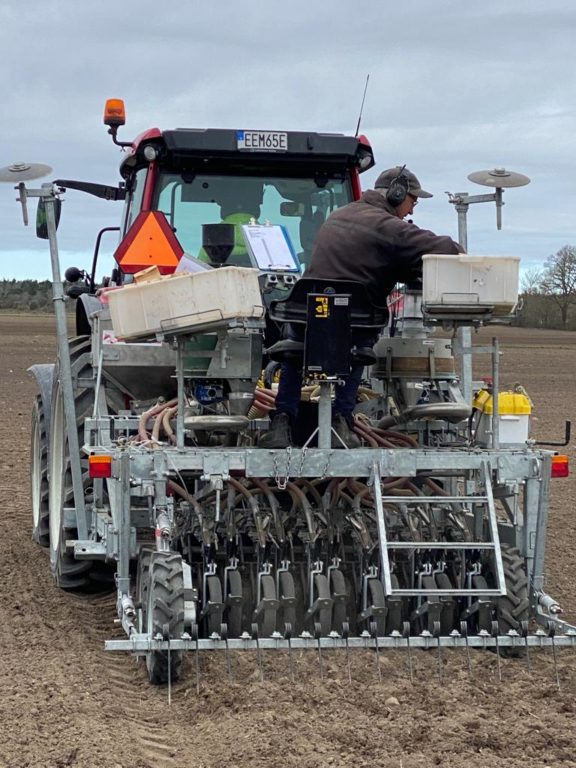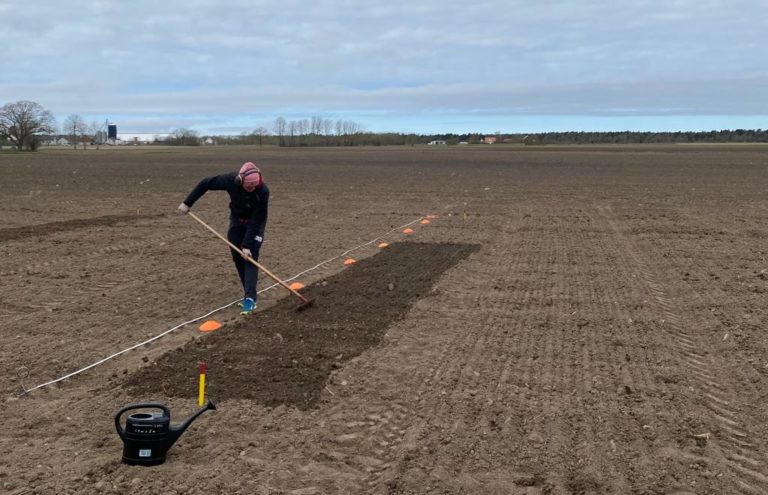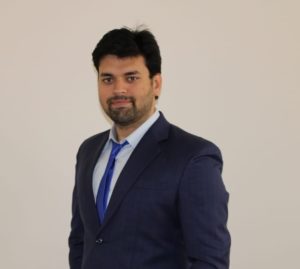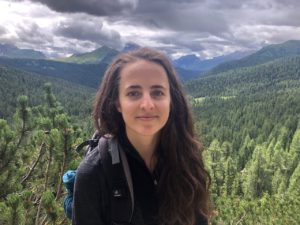
Funding for a new project “On-farm biochar filters for removal of organic micropollutants from reclaimed water for agricultural irrigation” has been approved by the Swedish Agricultural Research Foundation. The main applicant is Oksana Golovko from the Department of Aquatic Sciences and Assessment at SLU, with co-applicants Prithvi Simha from our research group and the biochar producer Waila on Gotland. Together with their newly hired PhD student, Maximilian Tyka, and Researcher Alberto Celma, they will carry out this project over the next four years.
Abstract: The use of safely reclaimed water for agriculture irrigation is a promising solution to address water shortages, especially on Gotland. One primary concern is the introduction of organic micropollutants (OMPs), such as pharmaceuticals and other chemicals, into the agricultural ecosystem and food chain. OMPs can be potentially persistent, bioaccumulative, toxic and could harm human health if they are present in agricultural products. This project aims to develop techniques to remove OMPs from reclaimed water using biochar, so that it can be safely reused for agricultural irrigation of food crops. The objectives are to 1) identify the most relevant OMPs in reclaimed water, 2) assess the capacity of biochar prepared from different renewable feedstock for removal of OMPs, 3) evaluate the thermal degradation of OMPs during re-pyrolysis/regeneration of biochar, and 4) communicate the results with food industry stakeholders.
 About a month ago now, Sanitation360 finally started this year’s field trials where barley is being grown and fertilized with human urine. In addition, this is an extra special year because we’re not only trialing our dry-fertilizer but liquid urine too (see top photo)! It’s going to be really interesting to compare the barley yields between these two different forms of human urine.
About a month ago now, Sanitation360 finally started this year’s field trials where barley is being grown and fertilized with human urine. In addition, this is an extra special year because we’re not only trialing our dry-fertilizer but liquid urine too (see top photo)! It’s going to be really interesting to compare the barley yields between these two different forms of human urine.



 Several members and PhD students of the ETE department (Environmental Technology) at Wageningen University & Research visited SLU earlier this month. We enjoted several interesting presentations from Miriam van Eekert, Huub Rijnaarts, Cecilia Lalander and Prithvi Simha which were followed by great discussions and a poster session where all PhD students got to showcase their research. We all also got to play a serious game which was facilitated by Jennifer McConville. It was a great day and we really look forward to future collaboration with ETE.
Several members and PhD students of the ETE department (Environmental Technology) at Wageningen University & Research visited SLU earlier this month. We enjoted several interesting presentations from Miriam van Eekert, Huub Rijnaarts, Cecilia Lalander and Prithvi Simha which were followed by great discussions and a poster session where all PhD students got to showcase their research. We all also got to play a serious game which was facilitated by Jennifer McConville. It was a great day and we really look forward to future collaboration with ETE. Last week
Last week 



